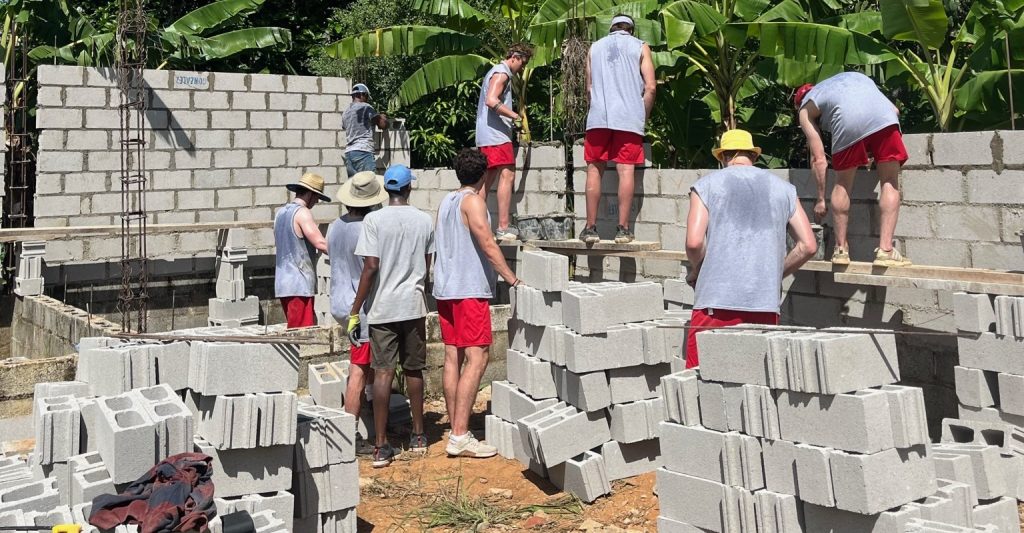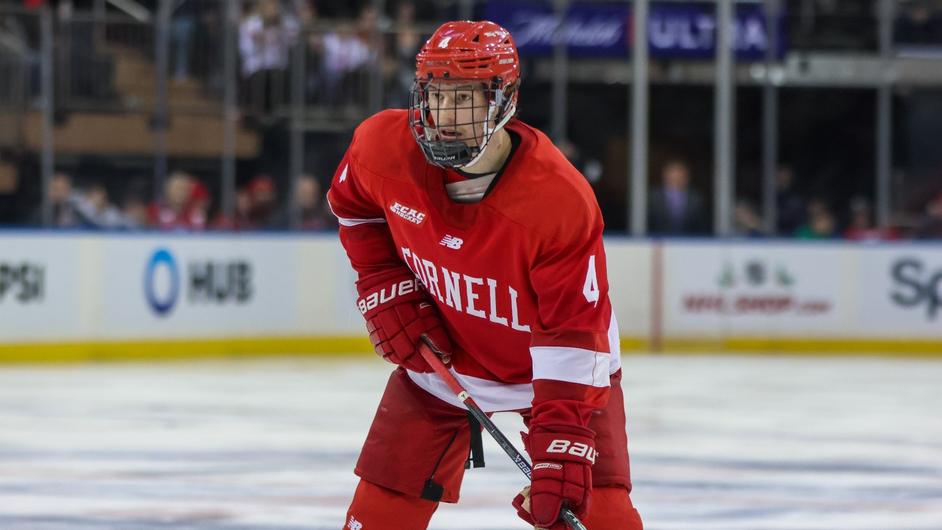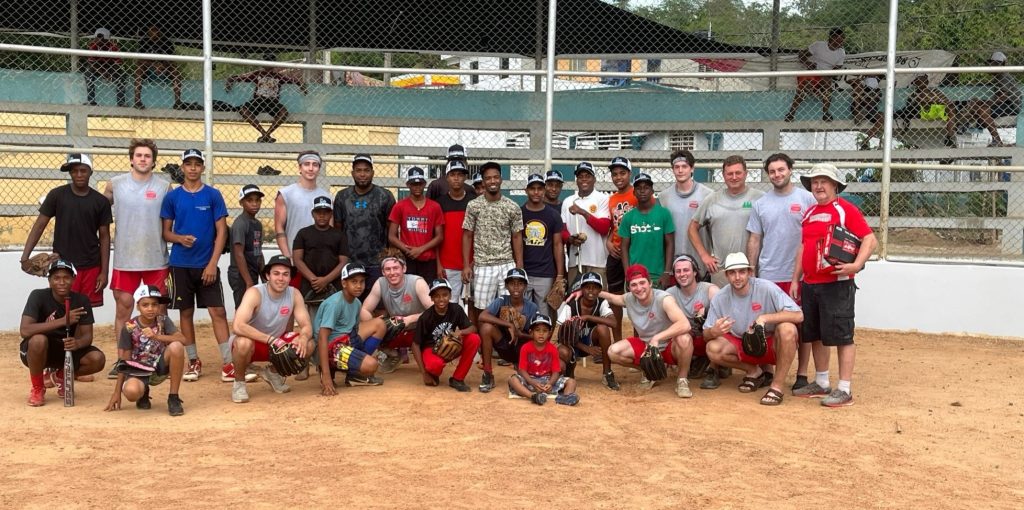
Hank Kempf didn’t think much about the case of trail mix that was in his house until it became more than a snack.
It was June in the Dominican Republic, but Kempf and his Cornell hockey teammates were sweltering in the heat as part of an annual service trip organized by coach Mike Schafer. For all of his 500-plus wins, 20-win seasons, trips to the national tournament, or ECAC Hockey conference championships, Schafer always made community service a core pillar to his program, and this past summer brought the Big Red to a tropical climate to help build a community center while assisting in the distribution of clothes, shoes and food.
The community outreach project was both a challenge and reward, and Kempf cracked open a bag of trail mix one day with the intention of simply having a snack. He offered it to a coworker who had been a part of the project, and in that moment, a bag of trail mix became more than just a snack.
“We had something like 100 [bags] back at our house for the week,” Kempf said. “We had a leftover that was available, so we gave it to him. What we realized was that he was making something like five dollars per week, so he started crying because he was so thankful for it.”
In that moment, Kempf realized the gift that had been bestowed upon him as a member of the Cornell hockey community. For the rest of the week, whenever the Big Red played baseball with the locals, they left the equipment and baseballs for kids. Where they could help, they went above the call, and when they came, their worlds had been changed with the realization of how some of the poorest people in a developing nation lived.
For Kempf, it was something to put in the back of his mind of an ever-evolving dedication to the service of communities both in Cornell’s Ithaca backyard and in the international community.

“Coach Schafer always talks about how important service is,” Kempf said. “And playing for Cornell and being under him has really been a great learning lesson into the value of service. It’s been a big thing for me, and it’s influenced me to branch out. Being in the Cornell hockey program is such an incredible place in so many areas, but it’s developed me as a person because you get to do so much away from the rink.”
Kempf’s involvement in his community dips into the very soul and fabric of what hockey humanitarianism is all about. What he does is so much more than simply donating his time in a single event, and looking beyond the exotic trip to the Dominican Republic’s baseball-playing nation offers a glimpse into just how important his work impacts those around him.
His work in organizing the Big Red Blocks for Healing initiative, for example, stemmed from how his own personal life was tinged with tragedy after his mother passed away following a bout with breast cancer. Spurred into wanting to help, he developed a program with his teammates over the summer that capitalized on the team’s desire to get into the dirty areas of blocking shots during games.
“A bunch of returners stayed [on campus] over the summer,” he said. “And before last season, we got together and met with some staff. We all kind of decided that it would be a great thing, this year, to do a service project with the team and have it be something that speaks to the team. I was a little hesitant to do something out of the gate in honor of my mom, but after I talked to my family, we all [decided] it was something she would want me to do. From there, it was a no-brainer to do something to honor her and to do something for breast cancer.
“We really looked at something that spoke to us as a shut-down, defensive team. And we love blocking shots. Blocking shots is a thing that’s really big in our program, so it was something that we said would be cool to make [the program] performance-based specifically for using shot blocks to raise money for breast cancer.”
Drawing inspiration from a professor who likewise dealt with cancer tragedy in his personal life, Kempf and teammate Ryan McInchak began tying the program to Camp Kesem, a no-cost support service with year-round options for children whose lives have been impacted by a parent’s cancer. The organization simultaneously provided a one-week, no-cost overnight summer camp for kids aged six through 18, but its full impact is how it enables children to emotionally escape from the toll and tax enacted by cancer in their personal lives.

The Big Red Blocks for Healing program facilitated pledges based on the number of shots the team blocked during the season while continually offering one-time options for donations, and after blocking 370 shots during its 2022-2023 season, Cornell upped its goal from $5,000 to $10,000 after using 429 blocks to exceed its initial goal during the ECAC championship run this year.
“The student-athlete life is incredibly busy.” Kempf said. “And when you throw a project like this onto everything, it’s like another class that’s year-round. But I’ve gotten a ton of help from Ryan McInchak, who is kind of my right-hand man through all of this. During the setup process, I did a lot before the year started, and there’s a lot of reaching out to [people] for networking and stuff like that, but it’s a lot more enjoyable than doing another class.”
Beyond even those projects, the New York Rangers draft pick remains deeply tied to the community around him through the Racker Center, which supports children with disabilities, and the Newfield Schools Mentor Program, where he’s been a guest reader for children while hosting groups for events and skates at Lynah Rink.
“It’s been such a cool experience to learn what service is really about for the community at college [and beyond],” he admitted. “Hopefully, these are lessons that I can keep learning from and keep developing this passion as I keep maturing and getting older in life.”


